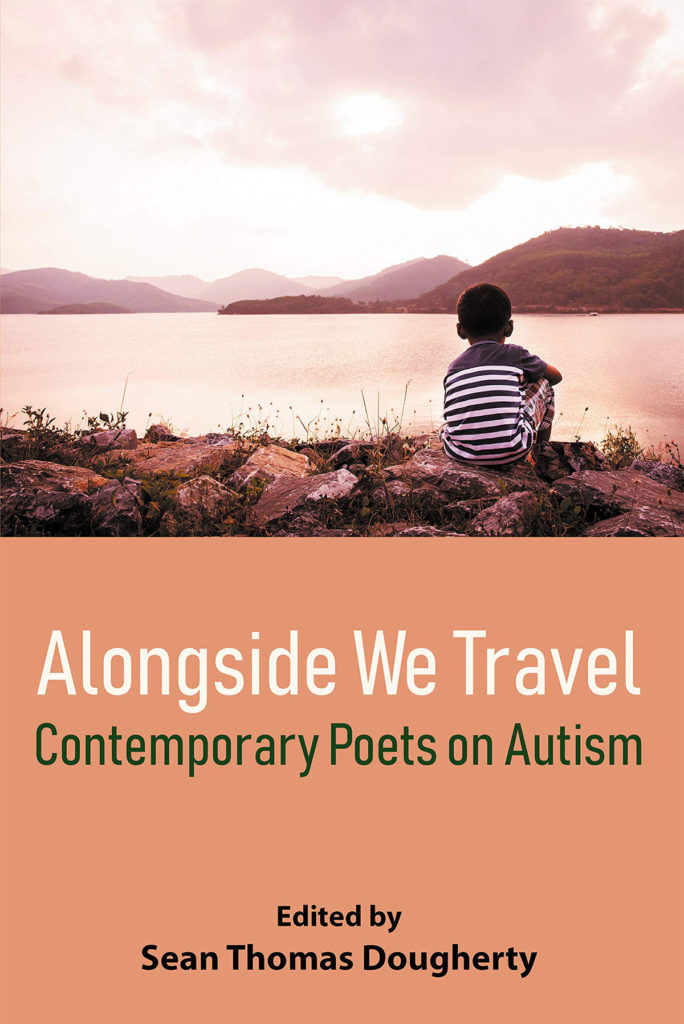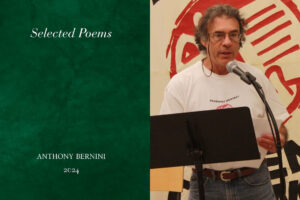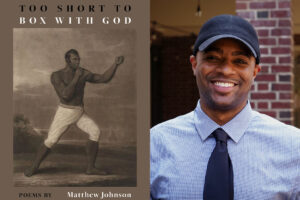Alongside We Travel: Contemporary Poets on Autism
Edited by Sean Thomas Dougherty
NYQ Books, 2019
$18.95
The school year is coming to an end, as I sort through piles of papers on my desk, triggering several avalanches I come across Alongside We Travel an anthology sent to me by a friend. I have exhausted all the energy to give. As a teacher to at-risk high school students and as a parent to two young girls, I know what it is like to give more of myself than I actually have. Knowing friends who are parents to autistic children, I am in awe of their ability to embrace the day-to-day challenges and sacrifices. I pick up the anthology and open up to “My Daughter’s Body” by Jennifer Franklin and read:
If you saw her, you would think she was beautiful.
Strangers stop me on the street to say it.
If they talk to her they see that beauty
Means nothing. Their sight shifts to pigeons
On the sidewalk. Their eye contact becomes
As poor as hers. They slip away slowly,
With varying degrees of grace. I never know
How much to say to explain the heartbreak.
 What we see and what others see don’t often coincide, and sometimes that and that alone is heart-wrenching. Listening to other people’s stories enriches our lives and helps us to form connections. This collection of poems reminds me of the importance of seeing life from a multitude of perspectives. Even though the central theme in this collection involves living with autism, there are so many more lessons present in these poems, far more than I will address here.
What we see and what others see don’t often coincide, and sometimes that and that alone is heart-wrenching. Listening to other people’s stories enriches our lives and helps us to form connections. This collection of poems reminds me of the importance of seeing life from a multitude of perspectives. Even though the central theme in this collection involves living with autism, there are so many more lessons present in these poems, far more than I will address here.
Since Autism is a complex developmental disorder that impacts each individual differently, everyone dealing with the diagnosis has unique experiences and responses. In the introduction, Sean Thomas Dougherty, the editor and a contributor, writes, “This anthology shows the true unflinching range of experience for writers involved in the disability of autism. This is a book by artists, making art out of the struggles of their lives.” I couldn’t agree more; what better way to share such a byzantine journey, but through poetry? Since there is no known cure and varying opinions on treatment, where does a person who is diagnosed or the loved ones of an individual diagnosed begin? So many of the pieces in this collection talk about how daunting the diagnosis of autism is like in “After the diagnosis I went to the pool to ease into cold fact” by Susan Elmslie:
Tell me joy persists. I need that to hold
as I parse the lengthening shadows:
therapies, special schools, the thinning hope
that he may speak, ride a bike, beat the odds.
This stanza clearly shows an internal struggle that any parent can relate to knowing their child may not achieve accomplishments often taken for granted. For so many of us expectations allow for oversight, but when you are a caregiver to a person with autism, you are not permitted that ommission. Poems like “For Jonah” by Matt Borczon shows the added complication of being a physically absent parent in a family dealing with an autistic child. Matt, who was away fighting in a war for his country, was also trying to come to terms with the war going on in his mind. He writes:
everyone
had a
right to
hate me
my wife
for offering
her no
support
and no
empathy
Jonah for
my leaving
at a
time when
he need
me
my other
3 kids
for having
to watch
my wife
do everything
Later in the same poem, the tone shifts, reminding the reader of the unpredictability of life. I think that this poem in many ways speaks to the essence of the whole collection, in that Borczon reminds us that we can waste time anticipating, but in the end, life unfolds as it will.
the first
night I
was back
he asked
me to
sleep in
his bed
asked to
lay his
head on
my shoulder
Jonah you
survived
this war
so much
better than
I did
Meredith Bergmann echoes this in a more direct way in her poem “Lesson,” when she says, “We learn that love and worry cannot cure.” Like a metaphor for life, all the time that people put into trying to make sense of autism, seems in the end misspent. Connie Post touches upon this in her poem “Cure,” when she discusses all the articles in the papers about breakthroughs, about hope, and then ends her piece with an image of a son tapping on his headboard in the middle of the night. That tapping represents the constant reminder that sometimes there are no easy solutions to the difficulties that people face. In another poem, “Sunday afternoon home visit,” Post writes:
you’ve spilled the cup of water
I brought you
I get up,
walk past the book shelf
with the alphabetical line
of autism books
and I realize not one
has taught me
how to hold this loss
Post reminds us that the search for understanding is a personal journey, and the directions for this journey cannot be found in books about the subject. However, I do believe that this collection itself does in fact show the reader how others have held loss and that is the beauty of poetry. Poetry allows us to find connections with others and helps us feel less alone. In “Magnitude,” Tony Gloegger shares the lie he tells himself, a lie that sometimes is not a lie, but other times is. He talks about how he tells a friend how he never wishes for Jesse, who he treats as a son, to be any different than he is. Then later, he confesses:
… But yes, I am lying
a bit. I’ve always wanted to lift
him on my shoulders, six years
old and singing that he believes
in the promised land at a Springsteen
show, play some one on one
in a schoolyard, keeping it
close and never letting him win
until he beats me on his own.
This piece shows the struggle between what we think we want and what we have. So often we can’t admit to that struggle and the pain that it causes us. Honesty, no matter how excruciatingly painful, is a common theme that runs throughout the collection. One of my favorite lines in the entire collection is in the poem “A Confession” by Emily Vogel when she writes, “I am ashamed to tell you this.” Not only is this a line in the poem, it is also a stanza sandwiched between the poet’s story, a reminder that dealing with autism is a gigantic emotional burden. People who have not experienced a situation often believe that they know how they would handle said experience, but this is a naive viewpoint, one that we have all had at one time or another, hence why this book is so imperative. In “Dark Card,” Foust discusses how others’ ignorance impacts her daily routines:
When they look at my son like that
at the grocery store check out
or at school assemblies,
I wait for the right moment, till they move
through laughter, raised eyebrows, clamped limps
–but before fear. Then I switch gears,
Go into my tap dance-and-shuffle routine.
Being on the defensive is discussed several times, especially in conjunction with dealing with the bureaucratic element of autism. I was especially drawn to Oliver De La Paz’s “Autism Screening Questionnaire–Speech and Language Delay,” where he poses questions asked and responds in poetic form.
6. Does your child pull you around when he wants something?
By the sleeve. By the shirttail. His light touch
hopscotching against my skin like sparrows.
An insistence muscled and muscled again.
Again, how does one respond to autism, to all that autism embodies? I think in this collection, the answer is through poetry. There is not one poem in this collection that I did not fall in love with, not one. I have never said that before about any anthology that I have read. Every piece in this collection fits perfectly into the overall narrative and I commend Dougherty for the selections that he made because being an editor is being a poet, and Doughtery is wildly successful at both. These poems allow the reader to see the multi-dimensionality of autism, to see it through the eyes of teachers, caregivers, people who are autistic or people who love someone who is autistic. This collection allows for a gamut of emotions, the poems allow you to see things from another perspective the way that loving someone who is autistic changes your view. In “Simile” by Barbara Crooker, a mother learns that what she deems to be attention-worthy is not what her son sees as important.
Last fall, we went to a Broadway play;
what he liked the most
were the traffic lights and Don’t Walk signs.
Oh, my little pork chop, my sweet potato, my tender tot.
You have made me pay attention to the world’s smallest
minutia. My pea-shaped heart, red as a stop sign,
swells, fills with the helium of tenderness, thinks it might burst.
Just like Barbara’s son made her see the world differently, this collection gives the reader the opportunity to share that experience, to understand what it is like to deal with autism on a personal level. If you only have time to read only one book this summer, this should, without a doubt, be the one. I have read work from many of the poets featured in this anthology and have great admiration for their work, but the magical element of this collection is the way that these pieces come together to create a full picture.





